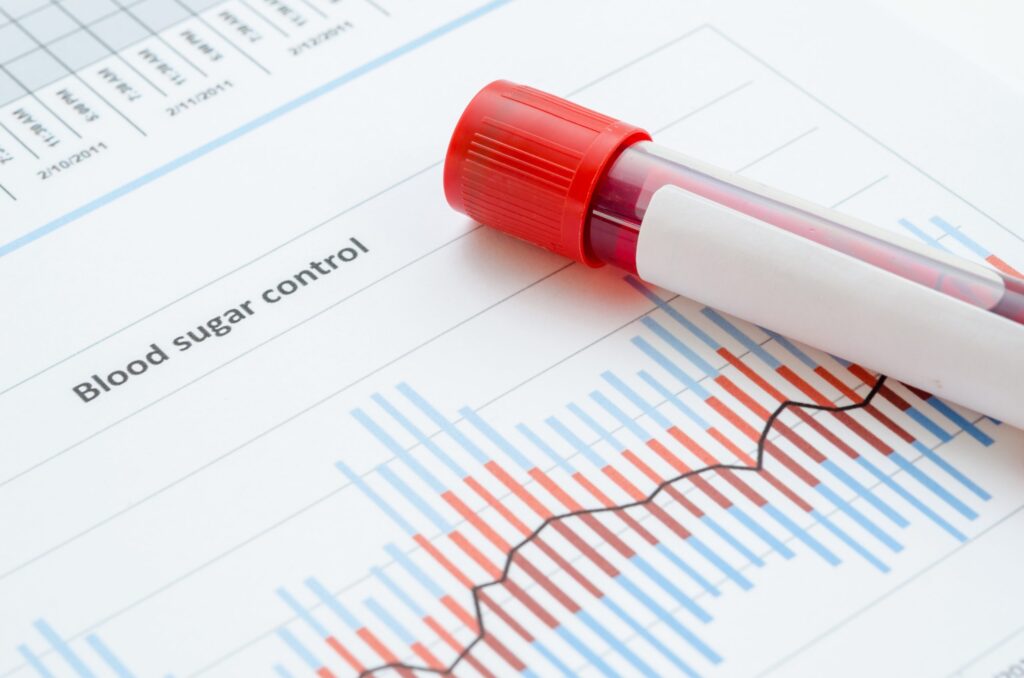Getting bloodwork done in midlife might sound like just another item to cross off your to-do list, but it’s one of the most crucial things that you can do to protect your long term health and wellbeing.
Whether you’re a woman entering perimenopause with symptoms like brain fog and anxiety, or a man suffering from fatigue and low libido, blood tests offer a goldmine of insight into your hormonal health – offering the potential to transform both your well-being and your life.
At Joi + Blokes, we’ve always believed that blood work is one of the most powerful tools in understanding your body and health – especially during midlife. While some people dismiss it as unnecessary due to daily fluctuations, the tide is turning and many experts are realizing that blood testing is increasingly important for identifying hormonal imbalances, nutrient deficiencies and early signs of chronic diseases.
“It’s true that hormones can fluctuate — especially during perimenopause — but that doesn’t mean bloodwork isn’t useful,” explains Katy Whalen, co-founder of Joi + Blokes. “Bloodwork offers a valuable snapshot of what’s going on in your body – just like a photo doesn’t capture every second, a hormone panel gives us a clear moment-in-time insight that, when combined with symptoms and history, becomes a powerful tool in creating personalized care.”
“We’re looking at patterns, deficiencies, and imbalances that help guide treatment,” Katy adds.
“Especially in menopause, when estrogen, progesterone, and testosterone are generally declining, bloodwork helps us understand how far they’ve shifted and how your body is adapting. It’s not about chasing exact numbers — it’s about making sure your body has what it needs to feel your best.”

Why Midlife Blood Work Matters
Midlife, the time that is typically considered around the ages between 40 and 60, can be a hormonal roller coaster. Men and women experience shifts in testosterone, thyroid function and overall metabolic health.
Here are the 5 main reasons why we believe that both men and women should be testing their blood regularly at midlife.
1. Estrogen protects against disease – including the no. 1 cause of death in women
Estrogen isn’t just a reproductive hormone, it is protective of your body from brain, bone and heart health. As estrogen declines during perimenopause and menopause, the risk of heart disease – the leading cause of death in women – rises significantly.
But by checking estrogen levels regularly through blood work, women can gain valuable insights into their hormonal health and take proactive steps – whether through lifestyle changes, nutrition or hormonal support – to protect their hearts. Between 70-140 ng/dL is the level that Susan Guthart, lead nurse practitioner at Joi, says is optimal for protection.
2. Not everyone absorbs hormones in the same way
So, you’ve been prescribed hormones and you’re hoping that they’ll set you on the path to better health. But there’s a catch: not everyone absorbs hormones the same way and simply taking them doesn’t guarantee that enough is reaching your bloodstream.
A Newson Health study of 1,500 women found that up to 1 in 4 women may need higher doses of oestradiol than some currently licensed levels to achieve the best, most optimized blood work.
“My labs showed how out of balance my hormones were, despite my OBGYN telling me I was ‘fine’”, explains Joi + Blokes patient turned brand ambassador Meredith Masony. “I have been taking HRT for over a year now and I feel amazing! I am building muscle mass, feeling balanced, better sleep, no major mood swings and my libido is back.”
3. A blood test will help you find out if you need testosterone
Low testosterone isn’t just a male issue. While it’s often tested in men for reasons like energy, mental clarity and libido, women also rely on healthy testosterone levels – especially during and after menopause – to support the very same things.
“I had zero sex drive for years,” says Joi + Blokes ambassador Marcella Hill. “I went to my OBGYN and asked her to check my hormones. She said everything looks normal, so I figured maybe I didn’t love my husband anymore.”
Still searching for answers, Marcella pushed for more comprehensive blood work. The results revealed that her low libido was actually due to low progesterone levels. Just one week into treatment, she felt like a “regular person” again – and by month four, she said her body “zings on” and she has “a freakin’ libido.”
For men, declining testosterone can lead to fatigue, depression, weight gain and loss of libido – all symptoms that are often associated with ‘just getting older.’ But as Ian Smith explains, bloodwork should never be overlooked, especially when find-tuning hormone therapy. “Testosterone is a powerful hormone that influences multiple systems in your body, and without routine blood work, you could be missing important pieces to the puzzle,” he states.
4. Thyroid trouble often starts during menopause – and only blood work will tell you that
The thyroid and estrogen have a delicate, interconnected relationship that can get unbalanced during perimenopause and menopause. As estrogen levels decline, thyroid function can be affected, altering how your body produces and uses thyroid hormones. This disruption often leads to symptoms like fatigue, weight gain, brain fog and mood swings – issues frequently mistaken for other midlife changes.
In fact, research from Newson Health reveals that many women are misdiagnosed with depression or anxiety, when the true cause is often thyroid dysfunction triggered by hormonal shifts.
5. Blood work can prevent symptoms arising in the first place
According to studies, one of the most powerful reasons to test your blood during menopause and perimenopause is to monitor inflammation – a silent trigger that can increase your risk of chronic conditions such as:
- Osteoporosis
- Dementia
- Heart Disease
- Type 2 Diabetes
Chronic inflammation has been linked to everything from joint pain to cardiovascular disease. But with early detections, you can take targeted action through lifestyle tweaks, diet and hormone therapy – way before more serious issues develop.
At Joi + Blokes, we screen for key inflammatory markers so you can gain real, actionable insight. Because when you understand what’s happening inside your body, you can take control of how you feel on the outside.
The bottom line: always test – don’t guess.
You can’t manage what you don’t measure. Whether it’s checking your testosterone levels, tracking estrogen absorption, or monitoring thyroid health, midlife blood work is essential for both women and men.

Protect your future self by checking in with your body today. Book your consultation – your heart, brain, bones and sex life will thank you. Explore our lab options to discover the best option for you.











